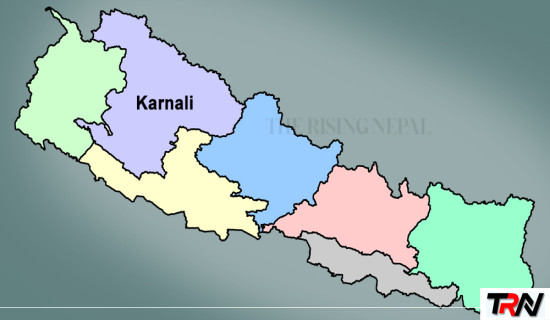- Sunday, 15 June 2025
Bay Of Pigs & Missile Crisis
In these times of superpower tussles over a variety of issues, the Cuban missile crisis in October 1962, less than 150-km off from the US shores, might be worth recalling. The nuclear-armed Soviet missiles and perceived threat to the US that caused the crisis did not happen overnight. The US had engineered a coup in Cuba in 1952 to instal a government that was pliant to Washington.
Hence the missile crisis was not a surrender by either party, though the Americans are habituated to trumpet how Moscow wilted under the hallmark-handling of the crisis by the US President John F. Kennedy. That the Vietnam War, whose genesis can be traced to the Kennedy administration, bloomed and boomed during the Lyndon Johnson years at the White House is another story. As many as 58,000 American troops were killed in the ’Nam war.
The 1961 Bay of Pigs invasion, launched by dissidents opposing Castro’s regime, and with full American funding and covert backing, was an embarrassing misadventure that exposed Washington in poor light for wrong planning and the miserable failure for the international community to see in full blast. Nearly 1,400 troops, mostly a ragtag collection of volunteer troops of the anti-Cubans based in the US and a few American security personnel as advisors, launched two-pronged attacks from Guatemala and Nicaragua in April but for the disastrous end.
Misadventure
Within three days, the invasion ended in a humiliating defeat that came only five days after Soviet astronaut Yuri Gagarin became the first man in space. Soon after coming to power in 1959, Castro aligned himself with Nikita Khrushchev-led Soviet Union. Washington turned furious over Cuba being not only a less than friendly country but also a communist regime with close ties to the Soviet Union, the world’s first communist state with the status of superpower rivalling the US.
Washington since long considered Cuba as its backyard and hence its desire for a pliable government on that Caribbean island. As an outcome, the pro-American General Fulgencio Batista, in 1952, staged a coup against President Carlos Prio, who fled to Florida to live in exile. This gave the inspiration and drive to Castro for pushing forth his communist movement against the corrupt “foreign puppet” in Havana.
That was barely seven years after the end of World War II which championed the cause of democracy and the rights of independent states. As long as Washington found a loyal regime in the Cuban capital, however, it had no qualms of whether the government was authoritarian or democratic. Its ambassador in Havana took active part in the host government’s cabinet meetings and even made strong suggestions that were generally complied with.
Cashing in on his proven loyalty and the consequent proximity to Washington, Batista had his way regarding how the state was governed. He put emphasis on “disciplined democracy”, rather than on fair elections and popular mandate. On the strength of his credentials as anti-communist, the US propped up Batista. But the 26th of July Movement succeeded in bringing about the intended objectives of the Cuban Revolution in December 1958. On coming to power, Castro nationalised American banks, oil refineries as well as sugar and coffee plantations. It also snapped ties with the US, and embraced Moscow as an ally.
In response, the Dwight Eisenhower administration in Washington directed the Central Intelligence Agency (CIA) to plan and ensure schemes to topple the Castro rule, even if it meant transparently covert American involvement using Cuban proxies as a blatant façade. Accordingly, Cuban exiles were encouraged to form the Democratic Revolutionary Front (DRF) with the primary purpose of bringing down the communist government in Havana. The CIA funded, trained and directed the DRF — all in the name of democracy. (Subsequently, other powers, too, lifted a leaf from the CIA scheme against their smaller and weaker neighbours in other in the world, often with failure.)
Castro’s guerrilla forces aggravated action in 1956 and, within three years, compelled Batista and his coterie to flee the country. Batista also is estimated to have carried with him with more than US$ 300,000,000, amassed through bribes and stolen from the state coffers for an intended life of comfort and luxury in Florida.
Embarrassed that its “Operation Mongoose” ended with a heavy thud, Washington tried every tactic in the assassination book to have Castro off the political scene for good. Luck, discipline and strong support from supporters saved the communist leader from his enemies. Experts estimate that at least two dozen attempts were made through an array of means and methods against Castro’s life during his half century in the seat of power — the first 17 years as prime minister and the rest as president.
Odious obsession
In the 1960 US presidential election campaign, Democratic Party candidate Kennedy came down heavily on Eisenhower and Vice-President Richard Nixon for not getting “tough” with Cuba’s communist regime. When he entered the White House in January 1961 as the country’s youngest and the first catholic president, Kennedy’s obsession with the idea of toppling Castro heightened. Had the newly sworn in executive head accomplished the mission, his stock would have soared overnight ensuring a second term in office four years later, barring, of course, some unpredictable contexts.
American media and opinion makers interpreted the end of the missile crisis as a great triumph over an aggressive Soviet regime. This was an attempt at sweeping the failed Bay of Pigs incident under the carpet, but the stink cannot be wished away from the pages of history. In fact, the failed US-inspired invasion was the immediate cause of Moscow and Havana agreeing to install nuclear missiles in Cuba in order to stave off future invasion attempts against Cuba.
The world found itself on tenterhooks during the missile crisis days, which ended not in the way the American press portrayed as a complete Moscow climb down. The two-superpower compromise resulted in the Soviets dismantling their missiles in Cuba, and the Americans willing to pull out missiles from Turkey while also promising not to engineer any more invasion of Cuba.
(Professor Kharel specialises in political communication.)
















